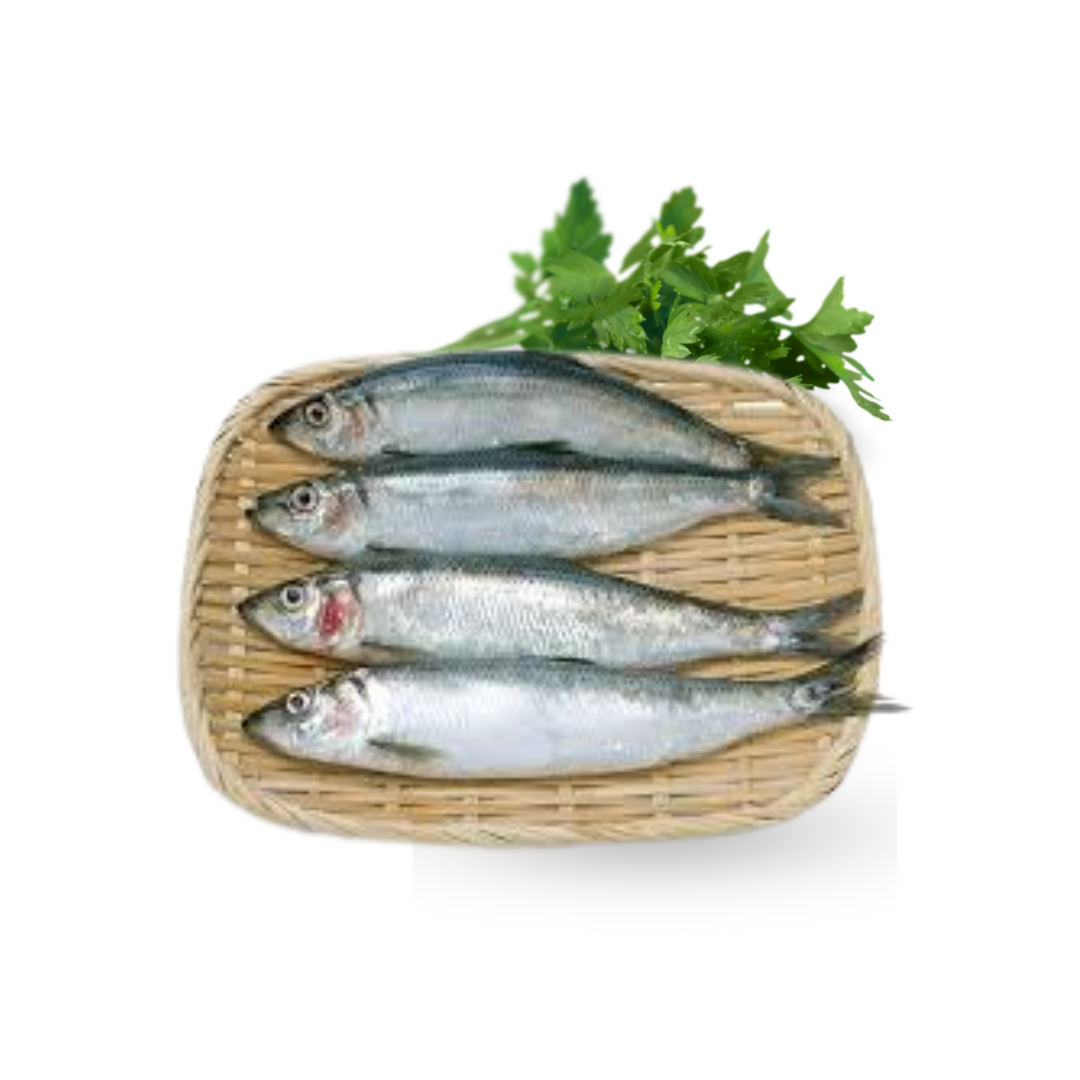
About Herring
Herring is a small oily fish that belongs to the Clupeidae family. It is commonly found in the shallow, temperate waters of the North Atlantic and the Baltic Sea. Herring is known for its rich flavor and high nutritional value, making it a popular food item worldwide.
Health Benefits of Herring:
-
Excellent source of protein: Herring is an excellent source of high-quality protein, which is essential for the growth and repair of tissues in the body.
-
Rich in omega-3 fatty acids: Herring is one of the best sources of omega-3 fatty acids, which are essential for brain health, reducing inflammation, and improving heart health.
-
High in vitamin D: Herring is a good source of vitamin D, which is essential for healthy bones, teeth, and immune system function.
-
Rich in minerals: Herring is a good source of minerals like iron, calcium, phosphorus, and magnesium, which are essential for various bodily functions.
-
Lowers risk of heart disease: The omega-3 fatty acids in herring can help lower the risk of heart disease by reducing inflammation, improving cholesterol levels, and reducing blood pressure.
-
Boosts brain function: The high levels of omega-3 fatty acids in herring are also beneficial for brain health, improving cognitive function, and reducing the risk of cognitive decline.
-
Promotes healthy skin: The omega-3 fatty acids in herring can help reduce inflammation and improve skin health, reducing the risk of skin conditions like acne and psoriasis.
Diseases that can be cured or prevented by consuming herring:
- Heart disease
- Stroke
- Depression
- Arthritis
- Diabetes
- Alzheimer’s disease
- Cognitive decline
Energy and Macronutrient Content of Herring per 50g serving:
| Nutrient | Amount |
|---|---|
| Calories | 114 kcal |
| Protein | 13.5 g |
| Carbohydrates | 0 g |
| Fat | 6.5 g |
| Fiber | 0 g |
| Water | 29 g |
Vitamin Content of Herring per 50g serving:
| Vitamin | Amount |
|---|---|
| Vitamin A | 48 IU |
| Vitamin B1 | 0.07 mg |
| Vitamin B2 | 0.15 mg |
| Vitamin B3 | 1.55 mg |
| Vitamin B6 | 0.1 mg |
| Vitamin B12 | 8.4 mcg |
| Vitamin C | 0 mg |
| Vitamin D | 422 IU |
| Vitamin E | 0.8 mg |
| Vitamin K | 0.1 mcg |
| Folate | 4.5 mcg |
| Biotin | 4.6 mcg |
Mineral Content of Herring per 50g serving:
| Mineral | Amount |
|---|---|
| Calcium | 25 mg |
| Iron | 0.4 mg |
| Iodine | 7.5 mcg |
| Zinc | 0.3 mg |
| Magnesium | 21 mg |
| Phosphorus | 138 mg |
| Potassium | 147 mg |
| Sodium | 115 mg |
| Chloride | 165 mg |
| Copper | 0.02 mg |
| Chromium | 1.5 mcg |
| Fluoride | 0 mcg |
| Molybdenum | 5 mcg |
What is herring?
Herring is a small, oily fish that is typically found in the North Atlantic and North Pacific oceans.
Is herring good for you?
Yes, herring is a nutritious fish that is high in protein, omega-3 fatty acids, and other beneficial nutrients.
What are the health benefits of eating herring?
Eating herring can help improve heart health, brain function, and overall health and well-being.
How can I cook herring?
Herring can be cooked in a variety of ways, including grilling, baking, frying, and smoking.
What are some easy herring recipes?
Some easy herring recipes include herring salad, herring toast, and herring pasta.
Is herring a sustainable fish?
Yes, herring is generally considered a sustainable fish due to its high abundance and low environmental impact.
How is herring caught?
Herring is typically caught using small fishing boats and nets.
Where can I find herring?
Herring can be found at many grocery stores and fish markets, particularly in coastal areas.
What is the nutritional content of herring?
Herring is a good source of protein, omega-3 fatty acids, vitamin D, and other important nutrients.
What is pickled herring?
Pickled herring is a traditional Scandinavian dish made by marinating herring in vinegar and spices.
What is smoked herring?
Smoked herring is a type of herring that has been smoked over wood chips or other types of fuel.







